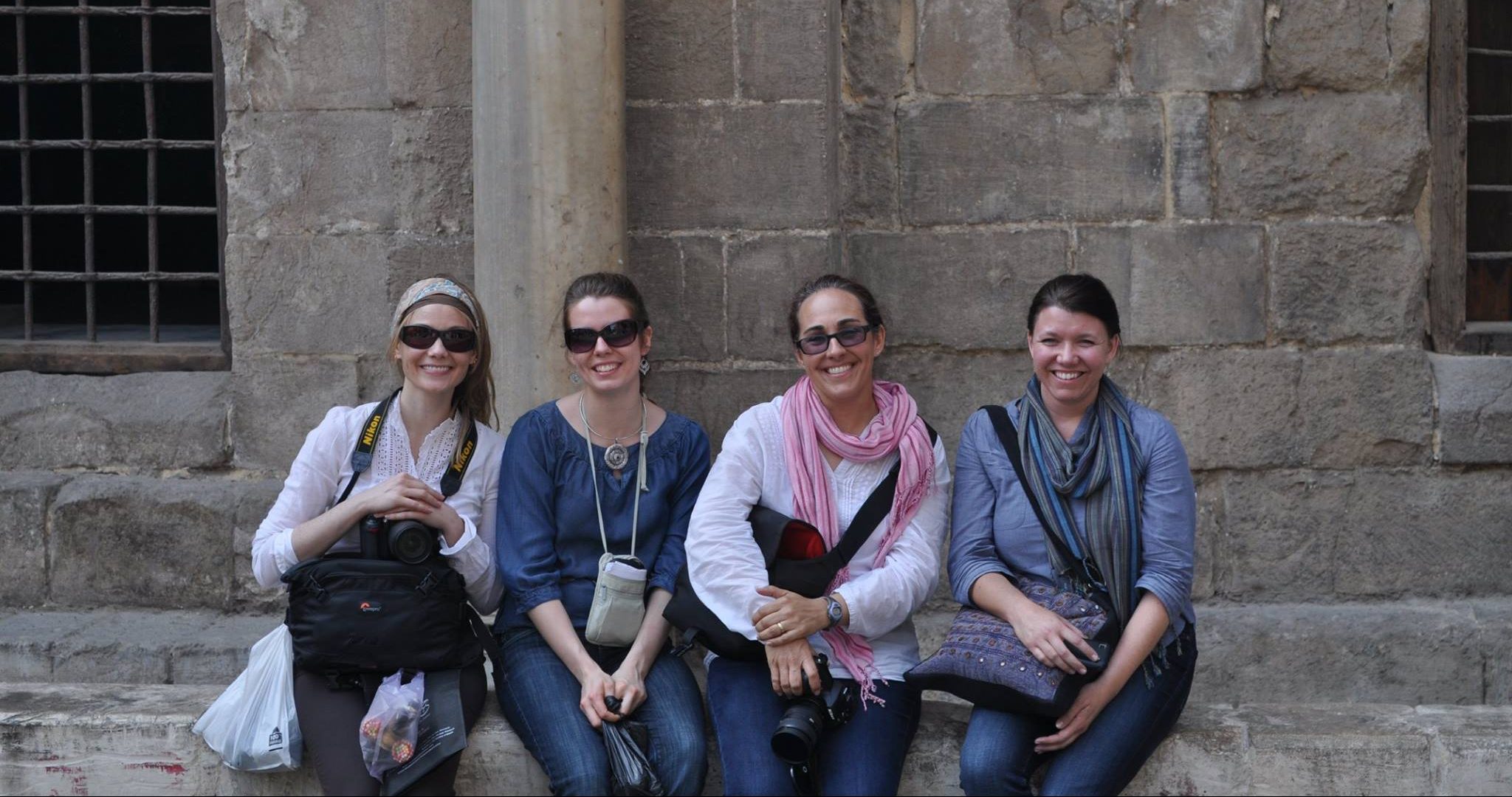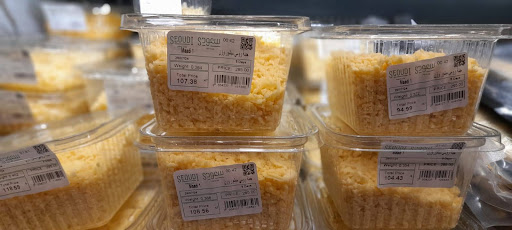
My Egyptian host family’s kitchen frightened me. Was it the small size? The dim lighting? The rusty metal sink and tiny stove? The gas tank? To be honest, all of these elements – so foreign to the kitchens I had grown up with – contributed to my feelings of intimidation.
But it was something else that really threw me off. The door. The door! Ghada’s family’s kitchen – no bigger than a closet – had a door. Sure, it was a curtain, and not an actual door, but still. Who completely closes their kitchen off from the rest of the house? Egyptians, that’s who.
Egyptians prefer a “closed” kitchen over an “American” (open) kitchen ten to one. There’s at least two reasons for this. A closed kitchen 1) keeps the mess out of sight and the smells contained, and 2) offers the chef enough privacy to disrobe – hijab, abaya, etc. – and cook in something a little less…confining.
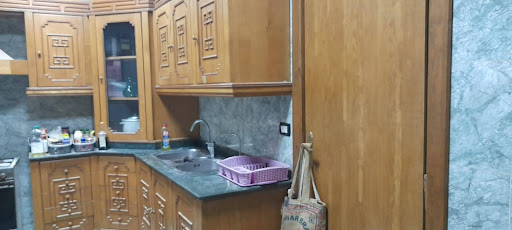
The Egyptian closed kitchen – hear no evil, see no evil
In the early days of my homestay, my hosts insisted on treating me as a guest. I was strongly discouraged from assisting with food preparation. This was fine by me, at first. The kitchen was forbidding, and besides – I did not know how to cook Egyptian food.
TIme passed, however, and my good upbringing prompted me to start helping out in the kitchen. I gathered my courage and announced my intention to make my hosts a family favorite – German omelet.
My host sister eagerly offered to help me gather the ingredients. Potatoes? Check. Eggs? Check. Cheddar cheese? Um…what? She had never heard of cheddar and had no idea where to find it. As far as she knew, cheddar cheese simply did not exist in Egypt.
In desperation, I embarked on a quest for an adequate substitute for cheddar that proved to be quite educational. I’ll share a few of my findings here, starting with “no way” and ending with “doable.”
No way: “Mish” or “gibna ‘adeema.” Mish has been discovered in ancient Egyptian tombs, making it the OG of Egyptian cheese. This aged cheese is covered in a brown spicy brine that earned it the nickname “mud cheese” by my children. Yeah, this cheese isn’t for the faint of heart. Definitely not a replacement for cheddar.
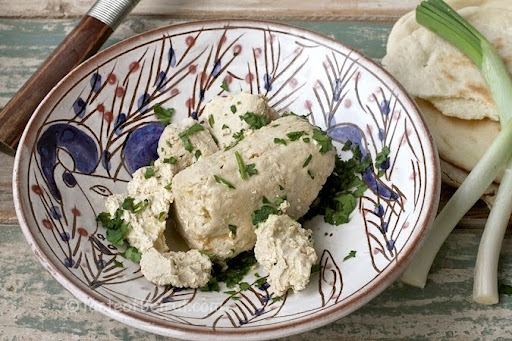
Decent: “Baramily.” This salty cheese reminds me of feta. My kids will eat it as a spread or mixed into a pasta salad. Sadly, baramily is not a substitute for cheddar.
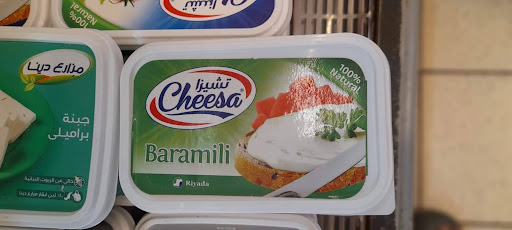
Yummy: “Gibna Areesh.” This squeaky cheese reminds me a bit of paneer, a popular ingredient in Indian cuisine. We love eating gibna areesh with olive oil and za’atar for breakfast. However, while fresh gibna areesh is delicious with aish baladi, it cannot cannot replace the meltable cheddar in a grilled cheese sandwich.
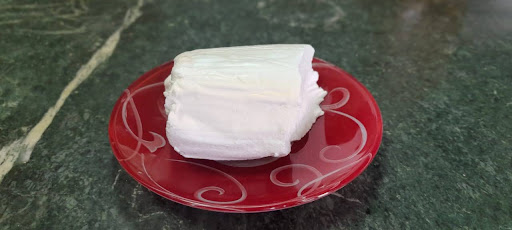
Arish cheese – tasty, but not meltable
Cheddar lovers, is there any hope? Is there an adequate substitute among the local options? Alas, the closest substitute is rumy cheese. Rumy cheese is the only local cheese that melts. My kids can sniff out this pungent cheese a mile away, but if I sprinkle a little grated rumy on a German omelet or pizza, I can usually get away with it.

Rumy cheese – the only meltable Egyptian cheese
Of course, every palette is different. People’s cheese preferences differ! The upshot is this: you need to embark on your own local cheese odyssey and find out which varieties strike that chord for you. Bil hana wa shifa!
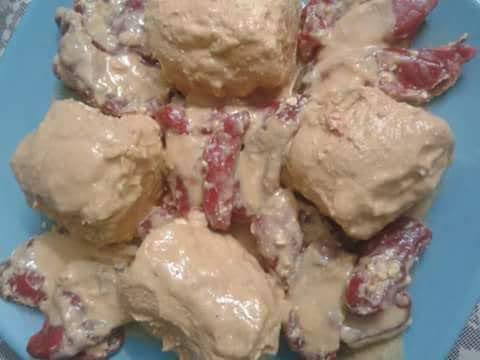
Mish – not for the faint of heart


